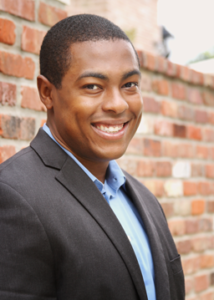
Maybe It’s Not Your Job to Deal with Trauma Drama
I’ve been in higher education just long enough to warrant a sense of déjà vu. My lips and tongue stretch in a pattern too familiar for comfort. My ears know the buzz of silence that follows the words now oft spoken. Despite the lack of novelty, every time I’m shook; the surprise never fails—the call, the response-- they stir every time.
It goes down like this.
I’m sitting with a colleague or a student. Sometimes I’m on a panel or giving a workshop. Maybe I’m standing before a mirror. Whoever is across from me begins to tell me about some crisis happening at their institution and how much it is weighing on them and those they care about and how they’re trying to find the solution. And then I say the thing that catches them off guard. It’s the same thing that catches me off guard, even though it shouldn’t.
“Maybe it’s not your job.”
Then there’s the silence, the loud, unmistakable silence when thought gives way to understanding.
In my contributions to this series on “Teaching and Traumatic Events,” I’ve tried to offer preparatory resources for those educators seeking to rise to the occasion. What needs to be said though is that it’s not always your job to do anything. You don’t have to unfurl a rapid response protocol, roll out a diversity initiative, lead the revolution, or assert what no one else has confessed. I don’t know your situation. But, teacher-to-teacher, I’m pretty sure that “fixing” isn’t in your job description.
I’ve tried to speak pretty generally about trauma in terms of its various meanings. But to clarify, I will call out the stressors that can precede the compulsion to fix. Why must you be the one to lead the charge? Sometimes the reasons simply aren’t good, but the voices peddling them are insistent. Here are few reasons for you to remember why “maybe it’s not your job.”
“It directly effects ‘people like you.’”
This line of thinking betrays a Horatio Alger/bootstraps myth to hardship. Because an event or circumstance impacts you, your efforts to rectify the situation can lead to glory. What doesn’t get mentioned is that those efforts can make you more vulnerable to the pain and suffering that will keep you from doing your actual job. In my opinion, you’ve just been given an opportunity to inquire what the institution is going to do to equip you to do your job effectively given the trauma’s impact on employees. This isn’t selfish. This is contractual.
“Your expertise is a natural fit.”
I think this line, perhaps more than any other, is a disenfranchising play, especially for those in religious studies and theological education. It assumes that some subject domains, by nature, lend themselves to relevance. Were this the case, then why not send a link or bibliography to those in need and check on them in the morning? Our expertise is in the connections we make between critical observations, creative analysis, and methodical application. None of that work is natural. No one comes to that without practice, training, and focus. And even if you find that you have the first two, your job description likely doesn’t afford the third one—especially if you’re teaching. If anything, your expert opinion may lead you to recommend that the concerned locate someone who can do the requested task better than you. Reluctance on their part to do so speaks volumes about their take on you and the trauma at hand.
“People look to you for . . . “
This may be true, but take some time to ask why. Early in my teaching career, a friend shared some great advice. She said that you can’t develop a good teaching strategy without understanding how your students see you. Often students fall back on socialized models to inform their interaction with professors (for better, and too frequently, for worse). Even when encountering the same instructional situation, we each might choose different teaching tactics because she, as a petite, African American woman, would be read differently than I would as a large, African American man. Amado Padilla put such readings in institutional terms when discussing the “cultural taxation” carried by faculty of color paid in undue burdens of service—especially on issues of diversity and inclusion. Some people benignly and naively will use any resemblance you bear to a stamp-worthy activist to make the devastating assumption that you should take up a similar mantle. That choice is on you. The institutional responsibility for that burden is not.
“You’re effective.”
Just because you are good at a task doesn’t mean other people shouldn’t be, nor does it mean you should do the task. You have a job to do and if that task is not part of it, that task can keep you from it. We never occupy one role or responsibility, but when I come across students inclined to activism, I remind them that ultimately their job in higher education is to graduate. As faculty, I wonder whether we remind each other about what we are here to do. I’m not going to presume to know what that is for each of you, but I don’t think your effectiveness at a task should be an excuse for others’ lack thereof.
People love to opine about the shortcomings of teachers. Press them on their rationale and you quickly realize they think we’re here to be tutors, social workers, counselors, and campus security. To paraphrase Michael Jordan’s words to a rising generation of basketball players, maybe we make this education thing look easy. Or maybe too many are using us as an excuse. Let’s not let them use trauma to do so.
Leave a Reply